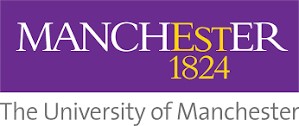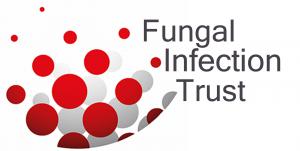Rare Fungi Added to Manchester's E-Learning Module Completes World’s 1st Fungal Microscopy Course


Prof. David Denning Professor of Infectious Disease in Global Health at The University of Manchester
Microscopy is critical to early identification and reducing deaths, pain and disfigurement from these unusual infections”
MANCHESTER, UNITED KINGDOM, March 2, 2018 /EINPresswire.com/ -- Today, experts at the University of Manchester have published the fourth and final module of Manchester’s Fungal Microscopy course - ‘Microfungi.net’. This course is the only comprehensive and University-accredited course on fungal microscopy available online and is now offered free of cost.— Prof. David Denning
The fourth and final module aims to equip learners with advanced skills in microscopy and identification of rare types of disease-causing fungi. It builds on content from 3 previous modules, helping doctors and scientists across the world identify fungi using little more than a microscope.
In this module, agents of chromoblastomycoses and mycetoma, well-recognized neglected tropical fungal diseases affecting ~100,000 persons worldwide have been added. In addition, agents of endemic mycoses including, Talaromyces (formerly Penicillium) marneffei, Paracoccidioides spp., Coccidioides spp., Blastomyces dermatitides, Sporothrix spp., and the globally distributed Histoplasma spp. have been covered.
This module also includes histological features of emerging opportunistic fungal pathogen, Emergomyces africanus and related species, responsible for causing outbreaks in HIV patients in South Africa and was previously thought to belong to the genus Emmonsia. The clinical presentation of emergomycosis and disseminated histoplasmosis in advanced HIV patients are indistinguishable, hence the need for a thorough histological/microscopic work-up. Furthermore, agents of sub-cutaneous zygomycosis Basidiobolus ranarum and Conidiobolus coronatus have also been added. These rare, chronic, granulomatous disease-causing fungal pathogens have distinctive microscopic features and do not form zygospores as compared to other agents of mucormycosis.
Important non-fungal organisms, notably Pythium insidiosum – an oomycete capable of causing cutaneous, vascular, ocular, gastrointestinal and systemic pythiosis following traumatic inoculation, Rhinosporidium seeberi – an aquatic microorganism that infects the mucosal surfaces (mainly the nose and eyes) of humans and animals, and agents of actinomycoses which are potent differential diagnoses of many fungal infections have also been covered in this module.
This course continues to attract students from developing countries, where the need for rapid diagnostic skills is greatest. The first 3 modules are also available in French, Spanish and Portuguese.
Dr. David Denning, Professor of Infectious Disease in Global Health at The University of Manchester – and one of the course designers stated: “Neglected tropical fungal diseases affect hundreds of thousands worldwide and very different treatments are required for each. Microscopy is critical to early identification and reducing deaths, pain and disfigurement from these unusual infections.”
Module 4 was designed by Dr. Jenny Bartholomew, Dr. Charlotte Sriruttan, Dr. Felix Bongomin and Dr. Rachel Orritt and Professor David Denning with contributions from mycology experts globally.
ENDS
For more information, please contact Professor David Denning on +44 161 291 5811 or 5818 or visit www.microfungi.net or https://youtu.be/S5TQ3q9P3k0
Issued by Luisa Morlano, The Goodwork Organisation on +44 (0) 20 8747 1488
NOTES TO EDITORS
Experts at The University of Manchester and the Mycology Reference Centre, Manchester have developed the course. www.mycologymanchester.org
The Fungal Infection Trust (FIT) funds it, building on its outstanding track record in delivering online education resources for doctors, research scientists, students and patients. The FIT has contributed over £4 million to research and education over the past 20 years. http://fungalinfectiontrust.org/
The course comprises 4 modules:
1. Basic microscope handling, sample preparation, safety and preparation of stains
2. Identification of different fungi by direct microscopy
3. Histology of the top 10 most common fungal infections
4. Fungal histology of unusual fungi.
The course includes knowledge assessments, tests, quizzes and practice assessments. Participants who pass the final assessment are awarded a certificate of completion accredited by The University of Manchester. The FIT is grateful to Gilead Sciences Europe for their educational grant to support the second phase of the course’s development.
Luisa Morlano
The Goodwork Organisation Ltd
+442087471488
email us here

